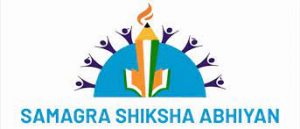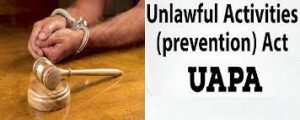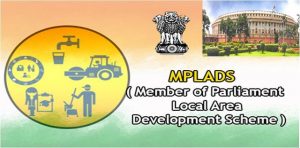Today Current Affairs: 6th August 2021 for UPSC IAS exams, State PSC exams, SSC CGL, State SSC, RRB, Railways, Banking Exam & IBPS, etc
Table of Contents
International Solar Alliance :Germany Became The 5th Country To Sign:

Germany became the 5th country to sign International Solar Alliance Framework Agreement after amendments to it entered into force on 8th January 2021, opening its Membership to all Member States of the United Nations.
- Membership to the ISA was earlier limited to 121 countries, which were partially or entirely located within the tropics. This didn’t allow major solar energy economies such as Germany to join the alliance that is being increasingly seen as a foreign policy tool.
- The initiative was launched by Prime Minister Narendra Modi at the India Africa Summit, and a meeting of member countries ahead of the 2015 United Nations Climate Change Conference in Paris in November 2015. The framework agreement of the International Solar Alliance opened for signatures in Marrakech, Morocco in November 2016.
- The ISA is headquartered in Gurugram, Haryana.
Fast Track Special Court:

The Union Cabinet has approved the continuation of 1023 Fast Track Special Court (FTSCs) including 389 exclusive POCSO Courts as a Centrally Sponsored Scheme (CSS) from 01.04.2021 to 31.03.2023 with an outlay of Rs. 1572.86 crore (Rs.971.70 crore as Central Share and Rs.601.16 crore as State share).
- Central Share is to be funded from Nirbhaya Fund.
- The Scheme was launched on 02.10.2019.
- To bring more stringent provisions and expeditious trial and disposal of such cases, the Central Government enacted “The Criminal Law (Amendment) Act, 2018” and made provision of stringent punishment including death penalty for perpetrators of rape. This led to the establishment of the Fast Track Special Courts (FTSCs).
- Fast Track Special Courts are dedicated courts expected to ensure swift dispensation of justice. They have a better clearance rate as compared to the regular courts and hold speedy trials.
- Besides providing quick justice to the hapless victims, it strengthens the deterrence framework for sexual offenders.
New Framework For Payment Systems Operators:

The Reserve Bank of India (RBI) has issued a framework for payment and settlement related activities by payment system operators.
- This framework is issued under provisions of Payment and Settlement Systems Act, 2007.
- The Payment and Settlement Systems Act, 2007 provides for the regulation and supervision of payment systems in India and designates the RBI as the authority for that purpose and all related matters.
- Earlier, the RBI has put in place restrictions with respect to investments in payments system operators (PSOs) by new entities from jurisdictions that have weak measures to deal with money laundering and terrorist financing activities.
New Framework:
- Licensed non-bank Payment System Operators (PSOs), cannot outsource core management functions.
- Core management functions include risk management and internal audit, compliance and decision-making functions such as determining compliance with KYC norms.
- It will be applicable to all service providers, whether located in India or abroad.
- Objective: To put in place minimum standards to manage risks in outsourcing of payment and settlement-related activities including tasks such as onboarding customers and IT-based services.
- Need:There is a potential area of operational risk associated with outsourcing by payment system operators and participants of authorised payments systems.
- India’s tech ecosystem has seen several high-profile cyber attacks such as those at Juspay, Upstox and Mobikwik over the last year targeting customers’ payments data.
Swinhoe’s Softshell Turtle:

In recent years, a lot of efforts have been put by the conservationists to save the world’s most endangered turtle, Swinhoe’s softshell turtle from the brink of extinction.
- The animal is also known as the Hoan Kiem turtle or Yangtze giant softshell turtle.
- In Vietnam, these animals have great cultural significance as people in Hanoi revere this creature as a living god.
- Scientific Name: Rafetus swinhoei
- These turtles are gray with light gray or yellow spots.
- Some researchers have highlighted their importance to the seafloor biosystem, where they contribute by enriching soil nutrients and facilitating seed dispersion.
- The natural habitat for these turtles are wetlands and large lakes.
- Native to China and Vietnam.
- Protection Status: IUCN Red List: Critically Endangered, CITES: Appendix II
- Threats:They have been driven to the brink by hunting for its meat and eggs, as well as by destruction of its habitat
Samagra Shiksha Scheme:

The Cabinet Committee on Economic Affairs has approved continuation of the revised Samagra Shiksha Scheme for a period of five years i.e., from 2021-22 to 2025-26 with a total financial outlay of Rs.2,94,283.04 crore which includes Central share of Rs.1,85,398.32 crore.
- The Centre plans to pay students their Right to Education (RTE) entitlements in the form of cash transfers as part of a revamp.
- The Samagra Shiksha scheme is an integrated scheme for school education covering the entire gamut from pre-school to class XII. The scheme covers 11.6 lakh government and aided schools with over 15 crore students and 57 lakh teachers.
- It involves a 60:40 split in funding between the Centre and most States.
- The major interventions proposed under the scheme are: (i) Universal Access including Infrastructure Development and Retention; (ii) Foundational Literacy and Numeracy, (iii) Digital initiatives; (iv) Vocational Education; (v) Sports and Physical Education; (vi) Strengthening of Teacher Education and Training etc.
- The Scheme is implemented as a Centrally Sponsored Scheme through a single State Implementation Society (SIS) at the State level.
- At the National level, there is a Governing Council/Body headed by the Minister of Education and a Project Approval Board (PAB) headed by Secretary, Department of School Education and Literacy.
Airports Economic Regulatory Authority Of India (Amendment) Bill, 2021:

With the passage in Rajya Sabha, Airports Economic Regulatory Authority of India (Amendment) Bill, 2021 got approval of both houses of Parliament. Earlier, on July 29, the Bill was passed in the Lok Sabha.
- It seeks to amend the Airports Economic Regulatory Authority of India Act, 2008.
- The 2008 Act established the Airport Economic Regulatory Authority (AERA).
- AERA regulates tariffs and other charges (such as airport development fees) for aeronautical services rendered at major airports in India.
- Major airports: The 2008 Act designates an airport as a major airport if it has an annual passenger traffic of at least 35 lakh.
- The central government may also designate any airport as a major airport by a notification.
- The Bill adds that the central government may group airports and notify the group as a major airport.
Unlawful Activities (Prevention) Act:

Since 2019, the Jammu and Kashmir (J&K) administration has booked over 2,300 people in more than 1,200 cases under the Unlawful Activities (Prevention) Act, and 954 people under the Public Safety Act (PSA).
- Of these, 46 per cent of those booked under UAPA and about 30 percent of those detained under PSA are still in jail, both inside and outside J&K.
About the Unlawful Activities (Prevention) Act:
- Passed in 1967, the law aims at effective prevention of unlawful activities associations in India.
- The Act assigns absolute power to the central government, by way of which if the Centre deems an activity as unlawful then it may, by way of an Official Gazette, declare it so.
- It has death penalty and life imprisonment as highest punishments.
- Under UAPA, both Indian and foreign nationals can be charged.
- It will be applicable to the offenders in the same manner, even if crime is committed on a foreign land, outside India.
- Under the UAPA, the investigating agency can file a charge sheet in maximum 180 days after the arrests and the duration can be extended further after intimating the court
As per amendments of 2019:
- The Act empowers the Director General of National Investigation Agency (NIA) to grant approval of seizure or attachment of property when the case is investigated by the said agency.
- The Act empowers the officers of the NIA, of the rank of Inspector or above, to investigate cases of terrorism in addition to those conducted by the DSP or ACP or above rank officer in the state.
- It also included the provision of designating an individual as a terrorist.
Recusal Or Judicial Disqualification Of Judges:

Chief Justice of India (CJI) N.V. Ramana has recused himself from hearing a petition filed by Andhra Pradesh accusing Telangana of depriving its people of their legitimate share of water for drinking and irrigation.
- The Chief Justice said he recused from hearing because he hailed from both Andhra Pradesh and Telangana.
- Andhra Pradesh has accused Telangana of refusing to follow the decisions taken on river water management in the Apex Council constituted under the Andhra Pradesh Reorganization Act of 2014.
- It said its neighbour also ignored the directions of the Krishna River Management Board (KRMB), constituted under the 2014 Act and directions of the Centre.
Judicial Disqualification or Recusal:
- Judicial disqualification, referred to as recusal, is the act of abstaining from participation in an official action such as a legal proceeding due to a conflict of interest of the presiding court official or administrative officer.
Grounds for Recusal:
- The judge is biased in favour of one party, or against another, or that a reasonable objective observer would think he might be.
- Interest in the subject matter, or relationship with someone who is interested in it.
- Background or experience, such as the judge’s prior work as a lawyer.
- Personal knowledge about the parties or the facts of the case.
- Ex parte communications with lawyers or non-lawyers.
Rulings, comments or conduct.
World’s Highest Motorable Road :Umling La pass In Eastern Ladakh:

The Border Roads Organisation (BRO) has constructed and completed black topping the world’s highest motorable road at Umling La pass in Eastern Ladakh, located at an altitude of 19,300 ft.
- By constructing this road, BRO has created a record in high-altitude road construction.
- It bettered the previous record of a road in Bolivia connecting to its volcano Uturuncu at 18,953 ft.
- The strategic road built under ‘Project Himank’ passes through the Umling La Top and connects Chisumle and Demchok villages.
- It will enhance the socio-economic condition and promote tourism in Ladakh.
- The road is close to the Line of Actual Control (LAC) and will allow quick movement of troops and equipment.
- The road has been constructed at an altitude higher than the Mt Everest Base Camps as the South Base Camp in Nepal is at an altitude of 17,598 ft, while North Base Camp in Tibet is at 16,900 ft.
- The road has been constructed much above the altitude of Siachen Glacier which is at 17,700 ft.
- The Khardung La Pass in Leh is at an altitude of 17,582 ft.
Project Himank:
- Project Himank, is a project of the BRO being implemented in the Ladakh region of Jammu & Kashmir.
- This project started in 1985.
Under this project, BRO is responsible for the construction and maintenance of roads and related infrastructure including the world’s highest - motorable roads.
Zero Hunger:

According to a recent report by the United Nations, the goal of achieving Sustainable Development Goals (SDG) 2 i.e. ‘Zero Hunger’ has been hit in the wake of the novel coronavirus disease (Covid-19) pandemic.
- The zero hunger goal works in tandem with many others: Poverty elimination (SDG1), good health and well-being (SDG3), and the need for clean drinking water (SDG6).
Relation with other SDGs:
SDG 2 and SDG 1:
- Food security does not only rely on food availability, but also on food access.
- If food security and poverty can be seen as part of the same battle, reduction of poverty should not only be sought through lower food prices but also through higher income.
SDG 2 and SDG 3:
- Nutrition is key to good health, so the relation between SDG 2 and SDG 3 is also synergetic.
- Environmental health through a more sustainable agriculture also establishes a link between SDG2 and SDG 3.
- Agricultural activities substantially contribute to global pollution: Biomass burning causes air pollution and land clearing contributes to fuel combustion emissions.
- Agriculture ammonia emissions also impact human health. They are behind several hundred thousand premature deaths per year globally.
Other SDGs: Similarly, education (SDG4), gender equality (SDG5), decent work and economic growth (SDG8), reduction of inequality (SDG10), sustainable cities and communities (SDG11), peace, justice and strong institutions (SDG16), and partnership for the goals (SDG17) also influence consumption patterns and healthy diet choice.
- Gender inequality makes several women food insecure: Female workers are a substantial share of the agricultural workforce, but face difficulties in accessing land, livestock, education, extension and financial services.
- Decent work and economic growth (SDG8) and reduction of inequality (SDG10) can also support better nutrition by going beyond SDG1 and bringing economic resources.
The Limited Liability Partnership (Amendment) Bill, 2021:

The Bill seeks to amend the Limited Liability Partnership Act, 2008 and provides for the following:
- To introduce the concept of “small limited liability partnership” in line with the concept of “small company” under the Companies Act, 2013;
- To amend certain sections of the Act so as to convert offences into civil defaults and to convert the nature of punishment provided in the said sections from fines to monetary penalties;
- To insert a new section 34A so as to empower the Central Government to prescribe the “Accounting Standards” or “Auditing Standards” for a class or classes of limited liability partnerships;
- To amend section 39 of the Act relating to “compounding of offences” so as to authorise the Regional Director to compound any offence under this Act which is punishable with fine only;
- To insert a new section 67A empowering the Central Government to establish or designate as many “Special Courts” as may be necessary for the purpose of providing speedy trial of offences under the Act;
- To amend section 72 of the Act so as to provide more clarity in the provisions when any person aggrieved by an order of “Tribunal” prefers an appeal to the “Appellate Tribunal”;
- To insert a new section 76A so as to provide that the Central Government may appoint as many officers as Adjudicating Officers as it thinks necessary for the purpose of adjudicating penalties under the Act.
Trial Of India’s First Indigenous Aircraft Carrier (IAC) Vikrant:

Prime Minister Narendra Modi congratulated the Indian Navy and Cochin Shipyard Limited for the maiden sea trial of India’s first indigenous aircraft carrier (IAC) Vikrant.
- With a planned induction of Vikrant in less than a year, India is set to join a select group of countries having the capability to indigenously design and build an aircraft carrier.
- Vikrant is named after the Majestic-class aircraft carrier which was operated by the Indian Navy from 1961 to 1997.
- IAC-1 has been designed by the Indian Navy’s Directorate of Naval Design (DND), and is being built at Cochin Shipyard Limited (CSL), a public sector shipyard under the Ministry of Shipping.
- This is the first aircraft carrier designed and built in India. An aircraft carrier is one of the most potent marine assets for a nation, which enhances a Navy’s capability to travel far from its home shores to carry out air domination operations.
- India’s earlier aircraft carriers were either built by the British or the Russians.
- The INS Vikramaditya, currently the Navy’s only aircraft carrier that was commissioned in 2013, started out as the Soviet-Russian Admiral Gorshkov.
- The country’s two earlier carriers, INS Vikrant and INS Viraat, were originally the British-built HMS Hercules and HMS Hermes before being commissioned into the Navy in 1961 and 1987 respectively.
MPLADS:

Virtually half of the belated ₹2,200 crore allotted for completing the ongoing MPLADS projects in 2020-21 simply lapsed, as the Finance Ministry granted “barely a week” to the Ministry of Statistics and Programme Implementation (MoSPI) to release the funds.
- Spending under the Members of Parliament Local Area Development Scheme (MPLADS) had already halved before the government suspended the scheme for two years in April last year and diverted the funds for managing the COVID-19 pandemic.
- From ₹5,012 crore spent during 2018-19, an expenditure of just ₹2,491.45 crore was taken up under the scheme in 2019-20.
- Each MP is granted ₹5 crore under the scheme, adding up to ₹3,950 crore a year for 790 MPs, to undertake development projects in their respective constituencies.
- After the scheme’s suspension, several MPs and parliamentary committees, including the Standing Committee on Finance (SCF), had asked the government to release MPLADS funds due from previous years for projects already sanctioned.
- The Finance Ministry also asked the Statistics Ministry to further tighten the scheme’s guidelines by September this year, so that “if a work sanctioned by an MP is not used for five years, it will automatically lapse even if there is a committed liability for the work to be completed”.
- Currently, funds released to district authorities under MPLADS is not lapsable, while funds not released by the government in a particular year are carried forward.




